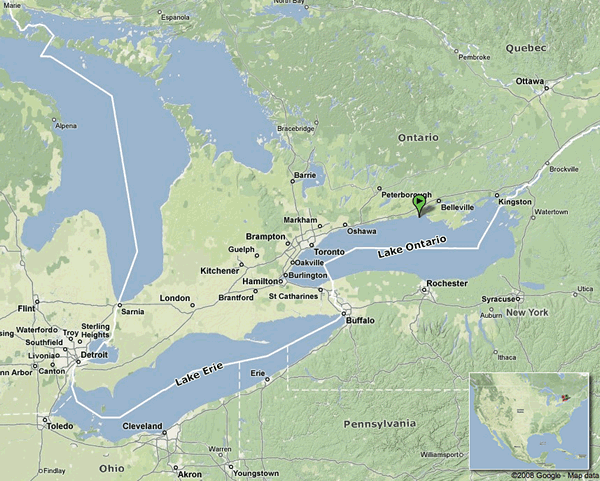
Copyright Jim Gagnon
Tagged Monarchs: What can we learn?
Every fall people all over North America carefully catch monarch butterflies, and place a tiny ID tag on one wing. The tagged butterflies are released and continue their journeys.

Copyright Jim Gagnon
Tagging Monarchs
Thousands of citizen scientists across North America tag and release monarchs every fall. When a tagged butterfly is recovered, interesting discoveries can be made.

Copyright Journey North
Tiny Tags, Big Discoveries
Monarch tags are tiny, light-weight, round stickers. They are a little larger than a hole-punch, about 9 mm in diameter. Each tag has a unique ID number. Look closely and you can see the information each tag carries.

Copyright Journey North
How Far?
During fall migration, a monarch was tagged in New Brunswick, Canada. It was recovered at the overwintering sites in Mexico. This tag recovery shows that a monarch can migrate more than 3,000 miles.
"This is the longest record by far of all the flights of migrating monarchs that we have ever recorded."
Monarch scientist Dr. Fred Urquart, 2001.

Copyright Jim Gagnon
How Fast?
A monarch can migrate at least 170 miles in a single day. This fact is known because of a tagging recovery. The monarch was tagged at 1 p.m. in New Jersey. The very next day, it was recaptured at 5 p.m. in Virginia.

Copyright Journey North
Which Way?
Tagged monarchs can reveal information about the pathways monarchs travel. For example, one tagged monarch seemed to follow the shoreline of Lake Ontario for 85 miles. This tag recovery supports other evidence that monarchs migrate along shorelines to avoid crossing large bodies of water.

Copyright Fredrick Alley
How Long?
People often wonder how long it takes one butterfly to migrate to Mexico. Tagging data can provide clues. The butterfly in this photo was tagged in South Dakota. It was found two months later in Texas, 852 miles away. This timing supports what we know about fall migration. Monarchs don't fly non-stop to Mexico. They feed, rest, and wait to travel until the wind is right.

Copyright Journey North
What Surprises?
Many tagged monarchs lead to unexpected findings. While on a picnic, one family found their own tagged butterfly 50 miles from home! After a hurricane, a monarch that had been tagged in Ohio was discovered in Canada, 165 miles to the northeast. Strong winds must have carried the butterfly in the wrong direction!

National Geographic, Aug. 1976
The Biggest Surprise of All
Tagging led to the discovery of the monarch's winter home in Mexico. Dr. Fred Urquhart, who invented monarch tagging in 1937, had been searching for nearly 40 years. His story was published by National Geographic.

Copyright Jim Gilbert
Tag and Release
Like a message in a bottle, a tagged monarch is sent off with wonder: Where will my monarch be in a few hours, days or weeks? Will my monarch make it to Mexico, and who might find it along the way? |








